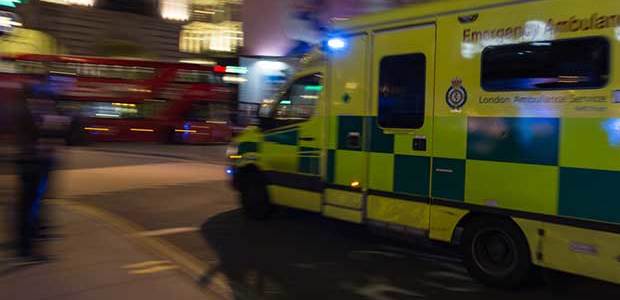
Review Finds Fire Service Delayed Two Hours Responding to Manchester Bombing
"The Fire Service was effectively 'outside the loop,' having no presence at the rendezvous point established by the Police, little awareness of what was happening at the Arena, and only a very limited and belated presence at Strategic Gold Command," the report on preparedness and emergency response after the May 2017 Manchester Arena suicide bombing says.
The Kerslake Report, an independent, comprehensive investigation of the preparedness for and emergency response to a suicide bomber's attack on Manchester Arena during an Ariana Grande concert on May 22, 2017, was published on March 27. It revealed that the Greater Manchester Fire and Rescue Service took nearly two hours to respond following the explosion, which killed 22 people and injured more than 100 others. About 14,000 people, mainly teenagers and their family members, attended the concert.
"The Fire Service was effectively 'outside the loop,' having no presence at the rendezvous point established by the Police, little awareness of what was happening at the Arena, and only a very limited and belated presence at Strategic Gold Command," the report says. "The reasons for the failure of GMFRS to respond adequately to the attack are set out in full in our report. There is not one single reason nor one individual that caused this failure. Rather, it was a combination of poor communication and poor procedures. GMFRS will need to reflect on the wider issues it raises for their operational culture and approach to multi-agency working."
The review was established by Manchester Mayor Andy Burnham after the attack and was chaired by Lord Bob Kerslake, the former head of the Civil Service.
"The Manchester Arena attack was devastating for many thousands of people," he said. "We must think first and always of the families of those who have been bereaved, those injured, and all those affected by this act of terror. We have ensured that their views have been front and center throughout this process. There is a lot to be proud of in the response to the attack, both for the city region of Greater Manchester and for the emergency services. The benefits of collaborative working and planning for emergencies were demonstrated to the full. And there were hundreds, if not thousands, of individual acts of bravery and selflessness. But it's also vital to learn the lessons around things that did not go so well. It matters not just for the people of Greater Manchester and beyond who were caught up in the terrible events of that night, but also for places that might be caught up in such an attack in the future."
The report says investments in emergency planning meant people were generally able to act with a high degree of confidence, and actions by individuals and organizations immediately after the bombing demonstrated enormous bravery and compassion. However, the report says the set-up of an effective emergency response line for families was seriously hampered by the "complete failure of a telephony system provided by Vodafone," which caused considerable distress on the night of the attack to families frantically seeking to find out more information about what had happened to their loved ones.
Vodafone apologized for the failure and promised to ensure it doesn't happen again, the report says, adding that because this a national contract with the Home Office, "we recommend that they should seek urgent guarantees from the company on this matter. There must be tested backup systems in place that eliminate the chance of another failure."
The report contains recommendations for the fire and rescue services, the Greater Manchester Police, government, local agencies, and health services.